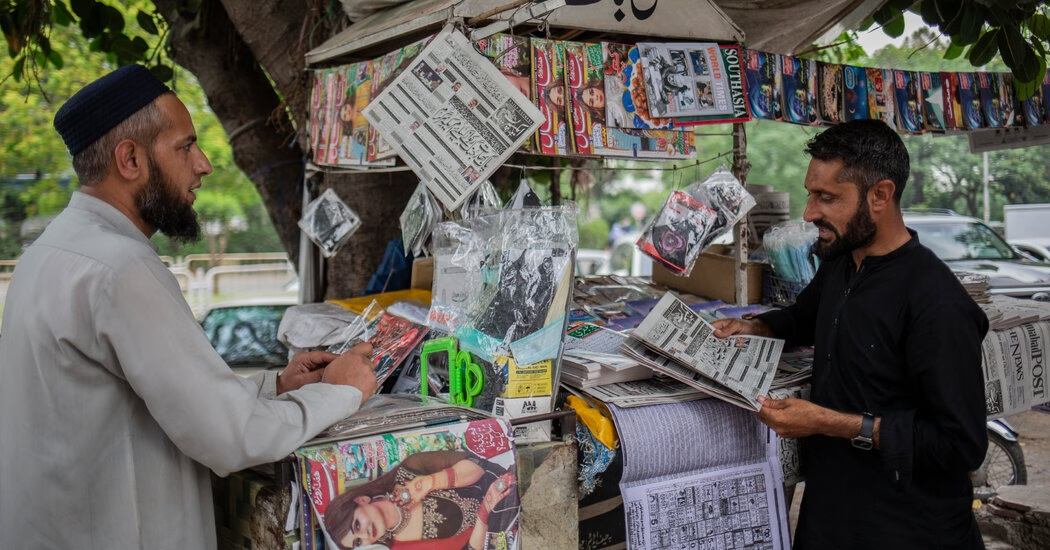Armed convoys are moving towards Pakistan’s border with India amid rising tensions, with fighter jets flying across the sky and television screens filled with warnings of conflict. National leaders are promising a decisive response to any military action. However, beneath the defiant declarations from Pakistan’s government, the weary public is exhausted and sees war as the last thing the country needs. Economic hardship, political resignation, and a future clouded by uncertainty dominate everyday conversations.
Tehseen Zahra, a university student in Islamabad, expressed her unease about the possibility of war and the country’s many problems, including inflation, unemployment, and an unrepresentative political system. Inamullah, another student in Islamabad, shared that he believes the country is weaker due to economic struggles and political instability. Despite these challenges, many Pakistanis remain resilient, finding dark humor in memes mocking the idea of war on social media.
The military’s central role in Pakistani life is evident, including its influence on politics, and its ability to influence public sentiment during times of crisis. However, recent conflicts and divisions have weakened the military’s legacy of public support during previous wars with India. Javeria Shahzad, a psychotherapist, observed a grinding despair among her clients as political crackdowns shrink freedoms and the country navigates economic struggles.
In an era of complex emotions towards the military, many Pakistanis remain loyal but also feel frustrated and angry towards the government and complex political and economic struggles. Aaliya Hamza, a former lawmaker, argues that involving Imran Khan in the national conversation might be necessary for the nation’s stability despite his falling out with the military.
Pakistan’s western border remains volatile, with militant groups stepping up attacks, and a low-level separatist insurgency simmers in the southwest. The country’s economic challenges worsen the anxiety over possible conflict, despite the government’s efforts to secure bailouts. The impact of these struggles is felt sharply in the part of Kashmir controlled by Pakistan, with tourism and daily life being affected.
Source: https://www.nytimes.com/2025/05/02/world/asia/pakistan-india-kashmir.html




